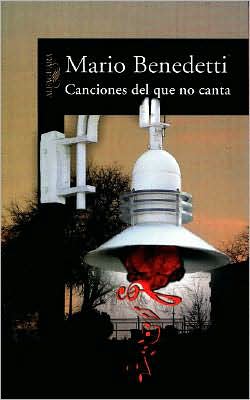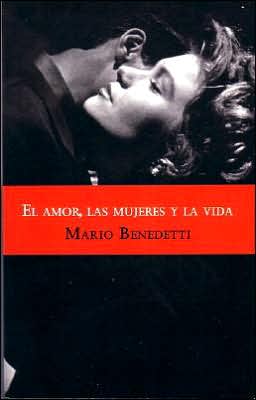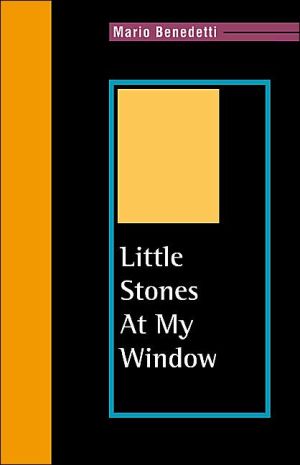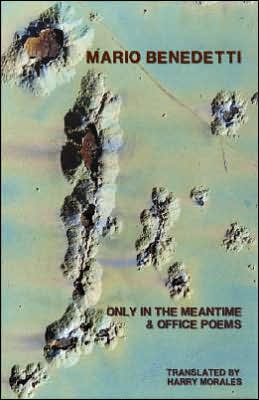Canciones del que no canta
Después de toda una vida vivida con intensidad, el poeta se toma tiempo para hacer un recuento de lo que en verdad aprecia y verdaderamente le pertenece. Descubre que nada humano le es ajeno, y en ese descubrimiento sus lectores (nosotros) somos al mismo tiempo participantes del regocijo y navegantes de rutas personales, pues la poesía de Benedetti es, como debe ser toda poesía digna de respeto, una plataforma para el despegue hacia un viaje al interior de nosotros mismos.
Search in google:
Después de toda una vida vivida con intensidad, el poeta se toma tiempo para hacer un recuento de lo que en verdad aprecia y verdaderamente le pertenece. Descubre que nada humano le es ajeno, y en ese descubrimiento sus lectores (nosotros) somos al mismo tiempo participantes del regocijo y navegantes de rutas personales, pues la poesía de Benedetti es, como debe ser toda poesía digna de respeto, una plataforma para el despegue hacia un viaje al interior de nosotros mismos.Salwa C. Jabado - CriticasA well-loved octogenarian poet of Uruguay, Benedetti has published over 80 books, from fiction and short stories to poems and essays. He recently published two poetry anthologies: The Little Stones at My Window (Críticas , 7/1/03) and Inventario Tres (Críticas , 1/1/05), as well as one book of short stories, Buzón de tiempo ( Mailbox of Time ; Críticas , 5/1/04). This newest book of poems, dedicated to his wife of 60 years, now deceased, continues his accessible and musical writing tradition. The narrative is divided into four sections, each with its own theme and style, including Sonetos con destino ( Sonnets with Destiny ), 18 whimsical sonnets on everything from tango to class struggle. Benedetti uses rhyme to inject humor and cultural criticism into his poems, as in Bostezos ( Yawns ) where he writes: Si algún orador repite/ tonterías ex profeso / yo bostezo ( If a speaker repeats/ nonsense ex professo / I yawn ). Perhaps best when writing about love, he suggests that lovers should be kept at the zoo to keep them safe from jealous exes in Enamorados ( Lovers ). As the caged lovers age and children visit them, they laugh and say/ look how the grandparents love each other, transforming the zoo metaphor into a beautiful witnessing of mature love. The poems are often sentimental and necessarily deal with aging, but they are also moving, as in the final poem, Epílogo ( Epilog ), which tells of his wife s final moments. Recommended for all libraries and bookstores with Spanish language poetry sections. Salwa C. Jabado, New York City
\ CriticasA well-loved octogenarian poet of Uruguay, Benedetti has published over 80 books, from fiction and short stories to poems and essays. He recently published two poetry anthologies: The Little Stones at My Window (Críticas , 7/1/03) and Inventario Tres (Críticas , 1/1/05), as well as one book of short stories, Buzón de tiempo (“Mailbox of Time”; Críticas , 5/1/04). This newest book of poems, dedicated to his wife of 60 years, now deceased, continues his accessible and musical writing tradition. The narrative is divided into four sections, each with its own theme and style, including “Sonetos con destino” (“Sonnets with Destiny”), 18 whimsical sonnets on everything from tango to class struggle. Benedetti uses rhyme to inject humor and cultural criticism into his poems, as in “Bostezos” (“Yawns”) where he writes: “Si algún orador repite/ tonterías ex profeso / yo bostezo” (“If a speaker repeats/ nonsense ex professo / I yawn”). Perhaps best when writing about love, he suggests that lovers should be kept at the zoo to keep them safe from jealous exes in “Enamorados” (“Lovers”). As the caged lovers age and children visit them, “they laugh and say/ look how the grandparents love each other,” transforming the zoo metaphor into a beautiful witnessing of mature love. The poems are often sentimental and necessarily deal with aging, but they are also moving, as in the final poem, “Epílogo” (“Epilog”), which tells of his wife’s final moments. Recommended for all libraries and bookstores with Spanish–language poetry sections.—Salwa C. Jabado, New York City\ \ —Salwa C. Jabado\ \





